|
|
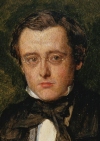 |
|
|
|
|
|
| 1824 | 1853 | 1864 | 1871 | 1874 | 1880 | 1888 |
Contemporary Biography
of Wilkie Collins
|
|
 |
|
|
|
|
|
| 1824 | 1853 | 1864 | 1871 | 1874 | 1880 | 1888 |
For images of Wilkie Collins click here
These pages bring together the full texts of biographical sketches of Wilkie Collins which were published during his life or by people who had known him. Their reminiscences enable us to see Wilkie Collins through their eyes and often hear the words he spoke to them and give details of his life and habits. Some biographers exchanged letters with him and passages Wilkie wrote in his replies are the closest to autobiography we have. Collins also wrote a short 'Reminiscences of a Story-teller' and 'How I write my books' both of which are included here. Some contemporary reviews of Wilkie's plays and novels are also included.
Extracts from letters are taken from The Public Face of Wilkie Collins - the collected letters, London 2005.
Some of these items have been found and e-texted by James Rusk and one by Daniel Stark.
There are more to add so check back regularly. The version number at the end shows how many items are here.
early 1860s 1870s 1880s posthumous to 1899 obituaries 1900s 1910s 1920s 1930s later
| Published |
Author |
Title: |
Description | |
| 1848 | Wilkie Collins | 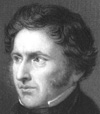 |
Memoirs of the Life of William Collins | Family anecdotes and references. The earliest published mentions of Wilkie Collins are in biography he wrote of his father, the artist William Collins (1788-1847) published in 1848. Here we find a comment at his christening, a mention in his father's letter, and a hope in the diary of his father, seen left. |
| 1854 | George Palmer Putnam | 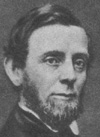 |
Putnam's Monthly Magazine | Early review in America. This early American review of Hide and Seek predated its publication there by 20 years. George Palmer Putnam (1814-1872) had recently launched his monthly to challenge Harper's and bring American thought and writing to a popular audience. This short critique may have been written by him or his editor Charles F Briggs.. |
| 1856 | (David Bogue) | 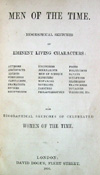 |
Men of the Time | Short biographical note probably written by John Cordy Jeaffreson (see 1858). Men of the Time was a collection of biographies of living people. It is the earliest published biography of Wilkie Collins and contains numerous errors. |
| 1857 | Edward Pigott (?) | The Leader | Contemporary review of play. This review of The Frozen Deep may have been written by the paper's editor and Collins's friend Edward Pigott. | |
| 1857 | Edmund Yates |
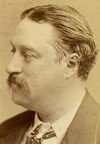 |
Men of Mark | Critique and biography by Edmund Yates. 'Men of Mark' was a series in the short-lived periodical The Train. Yates saw Collins's talent two years before The Woman in White. Also contains the first mention, not by name, of Iolani and a brief familiar account of his early life. |
| 1858 | John Cordy Jeaffreson |
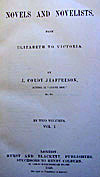 |
Novels and Novelists | Short biographical note written by John Cordy Jeaffreson (1831-1901) in his two volume work Novels and Novelists from Elizabeth to Victoria, London, 1858. It repeats the date of birth error in Bogue and reflects similar views about Collins's fiction. |
| 1860 | Wilkie Collins |
|
Preface to new edition of Antonina | Autobiographical information about Wilkie's attempts to publish his first novel Ioláni - which was never published in his lifetime - the creation and publishing of Antonina, and his view of contemporary historical romances. The picture is from the 1861 edition of The Woman in White. |
| 1861 | Wilkie Collins |
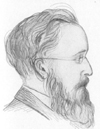 |
Letter correcting Bogue | Autobiographical details in a letter by Collins (left in 1862) to Edward Walford correcting the Men of The Time biography above. |
| 1862 | Wilkie Collins |
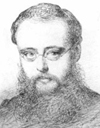 |
Memorandum | Short autobiographical memorandum written to a French correspondent covering his early life and his work to date. The picture shows Collins in 1862. |
| 1863 | George William Curtis |
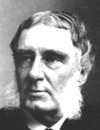 |
Editor's Easy Chair | Critique of Wilkie's work by American journalist. This review was almost certainly written by George William Curtis (1824-1892) who wrote the Easy Chair in Harper's New Monthly Magazine from 1859 until his death. Harper Brothers published Wilkie's work for thirty years. This piece is mainly about No Name, just finished in Harper's Weekly. |
| 1866 | Henry Morley |
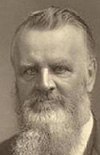 |
The Journal of a London Playgoer | Contemporary review of two plays by fellow writer. Henry Morley (1822-1894) was a writer who knew Wilkie well through his work with Dickens on Household Words. Here are two contemporary accounts of The Lighthouse and The Red Vial. |
| 1870 | George M. Towle | Appleton's Journal | Biographical and critical essay using original material by Collins. American writer George Makepeace Towle visited Wilkie Collins on 30 June 1868 at Gloucester Place and later Wilkie wrote him a Memoir to help with this piece, with accounts of his early life, Iolani, and Antonina. It was published in Appleton’s Journal of Popular Literature, Science, and Art 3 September 1870. | |
| 1871 | Anfred Ainger |
|
Dickens's Amateur Theatricals | Eye witness accounts of Wilkie's plays. The teenage Alfred Ainger (1837-1904) took part in Dickens's amateur dramatics. The few mentions of Wilkie have to be mined from a lot of spoil, but Ainger does give accounts of Wilkie’s two plays The Lighthouse and The Frozen Deep and mentions the literary debt Dicken and Collins owed each other.. It was published in Macmillan's Magazine in January 1871. |
| 1871 | The Graphic |
 |
The Woman in White | Contemporary review of play This contemporary review of The Woman in White at the Olympic includes an engraving of a scene from the play. |
| 1872 | John Forster |
 |
Life of Charles Dickens | Collins in the context of Dickens by a friend. John Forster's 1872 biography of Charles Dickens is a strange work and contains only a few mentions of Collins. It does though contain the assessment that Collins "became, for all the rest of the life of Dickens, one of his dearest and most valued friends." There are a few other mentions of Collins in Dickens's life. |
| 1872 | Unknown |
|
Vanity Fair | Sensation novels in context. This short essay accompanied a caricature by the Italian artist Adriano Cecioni (1838-1886). Its author is unknown. The essay and picture were published on 3 February 1872. |
| 1872 | Unknown |
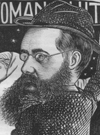 |
Once a Week | Contemporary criticism and biography. The author of this short critique of his work is unknown but it could have been James Rice, who owned and edited Once a Week at this time. The essays were merely an accompaniment to the caricatures of Frederick Waddy. |
| 1872 | Unknown |
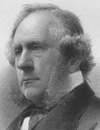 |
Editor's Literary Record | Critique of Wilkie's work by his American publisher. It is not certain who wrote this review of Wilkie's work. The person in overall charge of content in Harper's New Monthly Magazine was Fletcher Harper (1806-1877) who took over Harper Brothers when his elder brother James died in 1869. This piece is mainly about Poor Miss Finch. |
| 1873 | Georgina Hogarth |
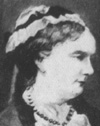 |
Letter to a friend | Assessment by friend in a letter. Georgina Hogarth wrote a paragraph in a letter to a friend, Annie Fields, about Wilkie and his plans to visit America and do public readings. |
| 1873 | Unknown |
|
Harper's Weekly | Positive criticism from his US publisher with some biography. This 1000 word essay was published in Harper's Weekly on 8 March 1873, partly to advertise The New Magdalen then running in Harper's New Monthly Magazine. |
| 1873 | George M. Towle |
 |
Harper's New Monthly Magazine | Claim that Wilkie was in British Museum reading room. This short extract from a piece by George M Towle in Harper's New Monthly Magazine claims he saw Wilkie Collins the Reading Room of the British Museum. However, there is no evidence that Wilkie had a ticket or read in the British Museum after the 1840s. |
| 1874 | Wilkie Collins |
 |
Introduction to 'The Frozen Deep' | Account of story and his time in America. Collins's introduction to the book publication of 'The Frozen Deep' gives details of the way play changed into a reading then into a story as well as some comments on his time in America and of the original performances including Dickens's acting. |
| 1875 | William Macready |
|
Macready's Reminscences | Short account of The Frozen Deep. His two volume Reminiscences of actor and theatre manager William Charles Macready (1793-1873) were edited from his papers and diaries by Sir Frederick Pollock and published after his death. |
| 1879 | [Bernard H Becker] |
|
Celebrities at Home | Biography by a writer after an interview. Bernard H Becker was a writer who worked on The World published by Collins's long-standing friend Edmund Hodgson Yates (1831-1894) pictured left. Becker was responsible for many of the 'Celebrities at Home' series. It was probably him who visited Collins in 1877 and the account was published in The World on 26 December that year. With a description of Gloucester Place and Wilkie's study; direct quotes on his working habits; school anecdotes; relations with Dickens; early works; many quotes on the genesis of The Woman in White; what Yates calls the méthode Collins in writing stories; and Forster's views of Collins. |
| 1881 | Wilkie Collins |
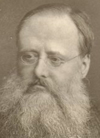 |
Letter to a literary enquirer | Letter giving very brief details of his work. Collins gives his date of birth and some details of his American trip and periodical works. |
| 1882 | W. Cosmo Monkhouse |
|
Turner | Short anecdote of Wilkie's youth. William Cosmo Monkhouse (1840-1901) art critic, artist biographer and poet, heard the story from George Walter Thornbury (1828-1876), an author and contributor to Household Words and All The Year Round whom Wilkie knew. The picture is of Turner. |
| 1883 | Dutton Cook |
|
Nights at the Play |
Contemporary reviews of seven Collins plays.
Edward Dutton Cook (1831-1883) was a theatre critic from 1867 until his
death in 1883. Nights at
the Play reproduces some of these contemporary pieces. No Thoroughfare (1867)
Black and White (1869) The Woman in White (1871) Man and Wife
(1873)
The New Magdalen (1873) Miss Gwilt (1876) and The Moonstone (1877). |
| 1883 | Anthony Trollope |
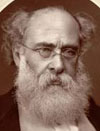 |
Autobiography | View by fellow author and acquaintance of Wilkie's work. Trollope knew Collins but gives no details of his life at all. Collins did not like it. It contains the famous quote "The construction is most minute and most wonderful. But I can never lose the taste of the construction." |
| 1884 | James Payn |
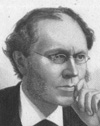 |
Some Literary Recollections | Reminiscence by fellow writer. The novelist James Payn (1830-1898) was a collaborator and friend of Wilkie's. He makes just a brief reference to Wilkie's view of one of his novels in Some Literary Recollections. There is a longer anecdote about his brother Charles which gives a little more insight into the Collins family. |
| 1884 | Edmund Yates |
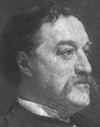 |
His Recollections and Reminiscences | Reminiscence by friend and colleague. Edmund Yates (1831-1894) gives relatively little about Collins in His Recollections and Experiences published in 1884. They include references to Household Words, The Lighthouse, Yates's expulsion from the Garrick Club, Dickens, his departure for America, and a letter from Elizabeth Braddon. |
| 1885 | Ernst von Wolzogen |
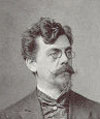 |
Wilkie Collins - Ein biographisch-kritischer Versuch | Critique by German academic. This summary and critique of Wilkie's work was written by the Austrian born author Ernst von Wolzogen (1855-1934). Chapter 2 is a short biographical account part of which is quoted directly from a letter written to him by Collins on 20 December 1882. |
| 1887 | Unknown |
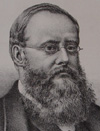 |
Men and Women | Autobiography and contemporary interview. This account of Wilkie Collins - accompanied by the photograph left - was by an unknown writer with Men and Women a short-lived biographical weekly. It contains a lot of unique material from Wilkie's own mouth about his early life, his first unpublished novel Iolani, his relationship with Dickens, his views of America, contemporary fiction, and much more together with the writer's own impressions of the man, his home, and his work. |
| 1887 | Wilkie Collins |
 |
How I Write My Books | Collins's own explanation of how he works. This essay on the méthode Collins appeared in The Globe 26 November 1887, pp. 511-514 |
| 1887 | Wilkie Collins |
|
Letter on his life and work methods | Collins writes to George Bainton. Two paragraphs of autobiography, one on how he works. |
| 1887 | Unknown |
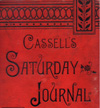 |
Cassell's Saturday Journal | Contemporary interview. This interview contains details of his study, his plotting, Fosco his 'best character', but Armadale his best work, his working habits - nocturnal in the past - and the green ghost he used to see, his amended but precise manuscripts, copyright, Scott's Old Mortality nearly the most perfect novel, an American reminiscence. The author is unknown. |
| 1887 | Unknown | Cassell's Saturday Journal | Short biography and analysis of his signature. Published shortly after the interview above. | |
| 1888 | Squire and Marie Bancroft | 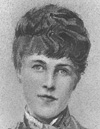 |
Mr. and Mrs. Bancroft On and Off the Stage | Letters from Collins and accounts of the drama Man and Wife. The Bancrofts - Squire and Marie - were actors and managers who met Collins when they produced and acted in Man and Wife in 1871. Contains accounts of the rehearsals and performances of Man and Wife, its move to the provinces, and Collins's nervousness on the first night. Also why they did not produce The Moonstone and Wilkie's letters on their performances and retirement. |
| 1888 | Richard Bowker | 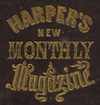 |
Harper's New Monthly Magazine | Biography, possibly from a meeting, and criticism. New York editor and publisher Richard Rogers Bowker (1848-1933) came to London in 1880 to launch a local edition of Harper's New Monthly Magazine. In July 1887 he wrote to Collins asking to meet. Collins replied to say he was too ill but promised to write again when his health had improved. Some details in this account could have come from a meeting but much could have been found in Yates and Appleton and there is one error, about his mother, which harks back to Bogue. |
| 1888 | Wilkie Collins |
|
The Universal Review | Autobiography This rare Reminiscence by Wilkie Collins gives a familiar story of his early story-telling life at school, an account of a dinner party embarrassment, and account of the reactions of readers to his books, especially The Woman in White. |
| 1888 | W. P. Frith |
|
My Autobiography and Reminiscences | Short reminiscence by a close friend. William Powell Frith (1819-1909) was an artist and close and early friend of Wilkie. He studied with Wilkie's brother Charles. Contains a short note about a billiards game, an account of Wilkie's character and an anecdote about Wilkie's good nature in the face of criticism. |
| 1889 | Wilkie Collins |
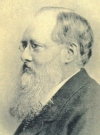 |
Letter to Edward Bok | Collins explains why he has not written an autobiography |
| Obituaries | ||||
| 1889 | F W Halsey |
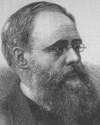 |
Harper's Weekly | Francis Whiting Halsey (1851-1919) was an editor and writer. This derivative and at times inaccurate obituary looks at Collins's life and work. An engraving of Collins (left) was published on a later page. |
| early 1860s 1870s 1880s posthumous to 1899 obituaries 1900s 1910s 1920s 1930s later | ||||
| 1889 | Olive Logan | 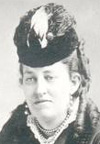 |
Wilkie Collins's Charms | Contemporary account by author after meetings. Olive Logan (1839-1909) met Collins in 1879, 1887, 1888 and describes his appearance, his advice on writing fiction and his views on contemporaries. |
| 1889 | Unknown | 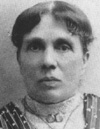 |
New York World | A contemporary and well-informed account by a journalist who claims to have spoken to Collins's friends at his funeral. It contains an accurate summary of his then unpublished will, details of his secret family, and claims the mother of his children - Martha Rudd seen left - was his mother's maid. |
| 1890 | George W. Childs | 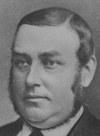 |
Recollections | Mention in reminiscence by friend. George William Childs (1829-1894), author, bookseller, editor and resident of Philadelphia writes one sentence about Collins's nature based largely on a meeting in America and correspondence. |
| 1890 | Henry Herman |
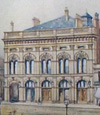 |
Between the Whiffs | Eye witness account by the manager of Wilkie rehearsing his play Miss Gwilt at the Alexandra Theatre, Liverpool in December 1875. Wilkie deals firmly with a recalcitrant actor. The theatre in 1870 is shown left. |
| 1891 | Edward L L Blanchard | 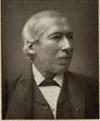 |
Life and Reminiscences | Diary of a playgoer. An account of the plays visited by Edward Litt Leman Blanchard (1820-1889), a writer, actor and critic, taken mainly from his diaries and notes. Mentions and some views of some of Wilkie's plays with extensive cast lists. Edited by Clement Scott and Cecil Howard. |
| 1891 | Wybert Reeve | 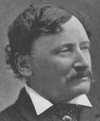 |
From Life | Reminiscences by actor friend with letters. Actor manager Wybert Reeve (1830-1906) became friendly with Collins in 1871 when he played in The Woman in White and then took it on tour. He also dramatised No Name. Reeve's account contains anecdotes about Wilkie's appearance and health, his time in America, Dickens, John Forster, and Charles Reade as well as accounts of The Woman in White, Man and Wife and The New Magdalen. He published a shorter and amended version in 1906. |
| 1892 | Joseph Hatton |
|
Pick-Me-Up | Joseph Hatton (1841-1907) was a journalist and writer. The short reminiscence quotes Collins on the dramatisation of The Moonstone and must date to 1877 when Collins was writing the play. |
| 1892 | Nina Lehmann | 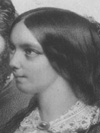 |
N.L. to F.L. | Reminiscence by close friend. Nina Lehmann writes a paragraph about her love for Wilkie in a letter to her husband. She was a close friend of Wilkie’s from at least 1850 and she and her husband Frederick remained his closest friends until his death. Their son Rudolph Chambers Lehmann collected some of their letters in a privately printed book in 1892. |
| 1892 | Alfred Story | 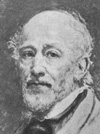 |
The Life of John Linnell | Accounts of reminiscence by friend of Wilkie's father. John Linnell (1792-1882 seen left in 1868) was a little younger than Wilkie’s father William Collins (1788-1847) and they were neighbours in Hampstead and Bayswater. The Life of John Linnell (1892) by Alfred T Story (1842-1934) contains some anecdotes and letters of Collins and Linnell which give us an insight into his religious beliefs and the closeness of the two families and a description of William Collins’s studio at 11 New Cavendish Street where Wilkie was born. There is also a short anecdote about Wilkie Collins as a boy as well as a brief mention of Linnell’s help with Wilkie’s biography of his father. |
| 1892 | George Augustus Sala |
|
Charles Dickens at Gad's Hill | Account of weekend at Gad's Hill with Dickens and Wilkie. George Augustus Sala (1828-1895), journalist and novelist, was well known to Dickens and Collins and a regular contributor to Household Words and All The Year Round. This first-hand account of a weekend at Dickens's home Gad’s Hill, at which Wilkie was present, was published in 1892. |
| 1893 | George Manville Fenn | The Art of Mystery in Fiction | Review of Wilkie's work by contemporary writer. Fenn was an editor and a prolific writer of stories for boys. There is a short mention of The Woman in White and The Moonstone in a longer piece on mystery in fiction in the North American Review. | |
| 1894 | Nathaniel Beard |  |
Some Recollections of Yesterday | Reminiscence by family friend. Nathaniel Beard was the younger son of Wilkie’s doctor and friend Francis Carr Beard. His childhood memories of Collins’s visits to the family home refers to his kindness, his lack of reading, his health, his prejudices about cooking and athletics, his small feet, tastes in music, and his love of anecdotes. |
| 1894 | Rudolf Lehmann |
|
An Artist's Reminiscences | Reminiscence by family friend. Rudolf Lehmann (1819-1905), a portrait painter moved from Germany by to London in 1866. He met Collins through his brother Frederic. A short passage describes Wilkie as a 'sitter' (Lehmann painted him in 1880), his laudanum addiction, his health, and his view that food you liked could do you no harm. |
| 1894 | Henry Marillier |
|
Men and Women of the Century | Short and derivative biographical note. Henry Currie Marillier's Men and Women of the Century was a collection of portraits by Rudolf Lehmann introduced by a short essay about the subject. Here it begins with a major quote from Lehmann's own An Artist's Reminiscences published in the same year. It adds nothing to what we know. The picture of Collins is by Lehmann. |
| 1895 | Percy Fitzgerald |
|
Memoirs of an Author | Reminiscence by writer friend. Percy Hetherington Fitzgerald (1834-1925) knew Collins well through his regular contributions to Dickens’s periodicals. Here he writes about meeting Collins, his relationship with Dickens, Collins story of a ghostly presence watching over him, his practice for reading in the USA, the reception of The Woman in White, and his respect for servants. All in markedly less negative tone than his Memories of Charles Dickens published nearly in 1913. His recollections of Wilkie's brother Charles are included at the end. |
| 1895 | John Hollingshead |
|
My Lifetime | Reminiscence by writer and theatrical friend. John Hollingshead (1827-1904) wrote for Dickens and was close to Wilkie through that and his campaigning on copyright. He describes two events with Dickens at which Wilkie was present - a dinner at Household Words; a trip to a 'haunted' house. He also gives his view of Wilkie's play The Red Vial, and quotes a letter from Wilkie about the Gaiety Theatre which he managed, and another about copyright theft of Poor Miss Finch. |
| 1896 | Mary Anderson | 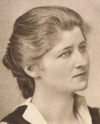 |
A Few Memories | Reminiscence by actor friend and letters. American actress Mary Anderson (1859-1940) met Wilkie Collins when she appeared in the mid 1880s at the Lyceum theatre in London. They remained friends until his death. Here she prints several letters and gives an account of Wilkie's character, his health, opium, and his dictation of The Moonstone. |
| 1896 | Napoleon Sarony | 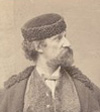 |
The Art of Not Posing | Anecdote by an American friend and photographer. Collins sat for society photographer Sarony during his visit to New York in 1873/74. Collins liked his photographs above all others and Sarony gives this account of how he got those images. |
| 1897 | James Payn |  |
The Compleat Novelist | Anecdote by literary friend. This short anecdote is in a long article on how to write novels in Punch December 1897. Compare this claim about The Moonstone with Payn's earlier reminiscence published during Wilkie's life. |
| 1899 | M.H. |
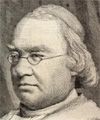 |
The Cornhill Magazine | Anecdote by an acquaintance. A story told to the unidentified M.H. about his meeting with Cardinal Wiseman (pictured left) in the very early 1850s. |
| 1899 | John Guille Millais | 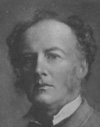 |
John Everett Millais | Reminiscences and letters by artist friend. John Guille Millais's account of the life of his father the eminent artist and ultimately President of the Royal Academy John Everett Millais (1829-1896) contains letters and eye witness accounts of Wilkie's life as well as that of his brother Charles. It describes Wilkie's attitude when Millais heard he was elected to the Royal Academy; the famous account of the origins of The Woman in White probably a fictionalised account of Wilkie's meeting with Caroline Graves; and the reaction to Basil; some short mentions of Harriet Collins and life and events at Hanover Terrace when Wilkie would have been present; and much about Wilkie's brother Charles. |
| 1899 | George Murray Smith |
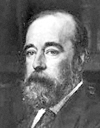 |
Reminiscences | Reminiscences of publisher. George Murray Smith was well known to Wilkie Collins and published some editions of his books including commissioning Armadale for The Cornhill Magazine. These reminiscences were taken down by Dr. W H Fitchett in 1899 and were never published. Includes account of his losing the bidding war for The Woman in White and some personal description. |
| 1899 | Lilian Whiting | 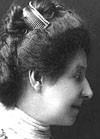 |
Kate Field - A Record | Record of contacts with American writer. Kate Field (1838-1896) was an independent actress and writer and campaigner for women’s rights who became friendly with Collins after meeting him in 1873. Field's close friend Lilian Whiting (1847-1942) used her letters and papers to write her biography which gives brief accounts of some of their meetings. |
| 1900 | William Tinsley |
|
Random Recollections | Account by a publisher. William Tinsley (1831-1902) published the work of many Victorian novelists, but only one of Wilkie's. This four page account concerns the deal he did for that novel, The Moonstone, how Wilkie bargained and a sentence on its dramatisation. See also Downey 1905. |
| 1902 | Clara Morris |
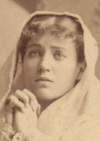 |
Life on the Stage | Account of Man and Wife by the leading actress. Clara Morris (1848-1925) began her New York theatre career playing the lead role of Anne Sylvester in a dramatisation of Wilkie Collins's play Man and Wife. She gives an account of getting the part and her debut on the New York stage at Augustin Daly's Fifth Avenue Theatre on 13 September 1870. There is nothing about Wilkie Collins himself. |
| 1902 | Hall Caine |
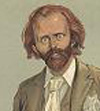 |
Household Words | Account of views by friend In 1902 an attempt was made to re-launch Household Words, Dickens's periodical which he closed down in 1859. The preface was written by Hall Caine (1853-1931), a Manx novelist who became a friend of Collins in his later life. This recently discovered text gives Collins's views on Household Words, Dickens, and the mass public. |
| 1903 | John Coleman | Charles Reade as I Knew Him | A few second-hand mentions John Coleman (who died in 1904) probably did not know Wilkie personally but makes some reference to him in his account of Charles Reade, who did. | |
| 1904 | Edward Marston | 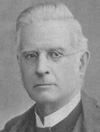 |
After Work | Account by a publisher and letters. Edward Marston (1824-1915) was a partner in the publishing firm of Sampson Low when it published Wilkie's The Woman in White. His few pages about Wilkie Collins mainly concern its publication but also contain details of Wilkie's payments for his next book No Name, and a few words of Charles Reade's opinion on Wilkie. |
| 1905 | Edmund Downey |
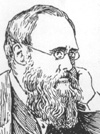 |
Twenty Years Ago | Eye-witness of Wilkie in old age and anecdote about Tinsley. Edmund Downey worked with the publisher William Tinsley. This short anecdote refers to seeing Wilkie between 1879 and 1884 and Tinsley's account to him of negotiations for The Moonstone. As Downey admits, it differs from Tinsley's own account in Random Recollections (London, 1900), also on these pages. The piece is illustrated by a sketch of Collins by Downey's brother Thomas - see left - taken from a photograph |
| 1905 | Rose Eytinge |
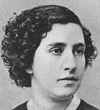 |
The Memories of Rose Eytinge | Eye-witness account of meetings. The American actress Rose Eytinge visited London in 1878 and met Wilkie at least twice. They first met when he called on her in late July or early August 1878. On 5 August Wilkie wrote to William Seaver "The illness seized me just after I had called on Miss Eytinge, and had had a most pleasant talk with her. From that time to this, to my great regret, I have not been well enough to see her again." But we know from this account that later she visited him. She married her third husband, the English actor Cyril Searle, in 1880. |
| 1905 | William Holman Hunt | 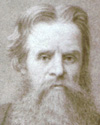 |
Pre-Raphaelitism | Reminiscence by artist friend. Holman Hunt (1827-1910) was close to the Collins family through Wilkie's brother Charles. Hunt's autobiography recounts stories of Wilkie on art and artists of the previous generation; on his brother Charles; on his character and way of living; on his own painting of smugglers; and of his advice to Hunt on selling a large painting. There are also anecdotes of Wilkie's mother Harriet and of brother Charles's career, wedding, and death. |
| 1906 | Wybert Reeve | 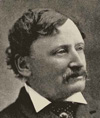 |
Recollections | Reminiscence by actor friend and letters. Actor manager Wybert Reeve (1830-1906) became friendly with Collins in 1871 when he played in The Woman in White and then took it on tour. He also dramatised No Name. Reeve's account contains interesting anecdotes about Wilkie's appearance and health, his views on death, Dickens and Forster, his noting down of people and things he saw, the origins of The Woman in White, the production of Man and Wife and The New Magdalen, and anecdotes of his time in America. An earlier version was published in 1891 and contains more material. |
| 1908 | Hall Caine |  |
My Story | Reminiscence by novelist friend and letters. Hall Caine (1853-1931) befriended Collins's in the last years of his life after seeking advice on his first novel and it is clear from his letters that Collins valued his friendship and admired his writing. Caine describes Collins's appearance, his pleasant manner, his views on other writers, the title 'The Woman in White', his laudanum habit, and his closeness to Dickens. Some of his information - particularly about Collins's time on Isle of Man - is incorrect. |
| 1908 | R C Lehmann | 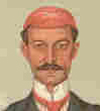 |
Memories of Half a Century | Long reminiscences and 22 Collins letters by the son of close friends. Rudolph Chambers Lehmann (1856-1929) was the son of Wilkie's close friends Fred and Nina Lehmann. These reminiscences cover Humour, Hard work and courage; the boxer Tom Sayers; Kindness; Physical appearance; How he spoke French; Pronunciation of English words; Letters to Wills; Letters to Fred and Nina including two poems; View of American Civil War; Cordiality between Collins and the Lehmanns; Opinion on education; Latin verse translation; Bet with Dickens and others; Charles Collins’s wedding; Working at Woodlands; Bulwer Lytton on The Woman in White; Mentions by Anne Procter; Anecdote involving Chorley. |
| 1908 | Jane Ellen Panton | 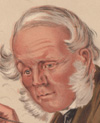 |
Leaves from a Life | Reminiscence by daughter of artist friend. Jane Ellen Panton was the daughter of William Powell Frith. She writes a short anecdote about the opening of an unidentified play and a shorter one about Wilkie's writing and diet with a quote from Frith, seen left. |
| 1909 | Squire and Marie Bancroft | 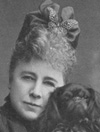 |
The Bancrofts | Reminiscence by actor friends and letters. In 1909 Squire and Marie Bancroft re-told their memoirs and repeat almost word for word those in their 1888 book. But they add here a story about Wilkie's opium addiction and one new letter. |
| 1909 | Charles Burnham |
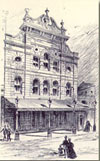 |
The Front of the House | Account by boy who met Wilkie in 1873. A short anecdote about Charles Burnham's encounter with Wilkie Collins in Augustin Daly's theatre - seen left. |
| 1909 | W Teignmouth Shore |
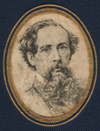 |
Charles Dickens and his Friends | Anecdotes and a letter in reminiscences of Dickens. William Teignmouth Shore (1865-1932) collected anecdotes and stories from people who knew Dickens and his contemporaries. He is the only source for a letter of 1862 and some anecdotes. |
| 1909 | William Winter |
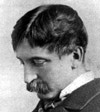 |
Old Friends |
Reminiscence by writer friend. Journalist William Winter (1836-1917) visited Europe many times and first met Wilkie at his home in June 1877. They corresponded frequently and met on several occasions. He describes Wilkie's favourite novelists, his views and perception, his laudanum habit, its effect on writing The Moonstone, his views of other writers, his bearing, his love of food and black pepper. This extract concludes with an account of the actress Ada Cavendish who acted in two of Wilkie's plays. |
| 1911 | Henrietta Ward | 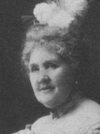 |
Reminiscences | Reminiscence by close friend. Henrietta Ward was an artist in he own right and the wife of Wilkie's close friend Edward Matthew Ward. These early Reminiscences in fact contain much less on Wilkie Collins than her later Memories of Ninety Years (see below). One story is in both. |
|
1912 |
Frank Archer | 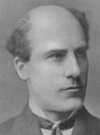 |
An Actor's Notebooks | Reminiscence by actor friends and letters. Wilkie met Frank Archer (1844-1917) in 1873 when he played Julian Gray in the original production of The New Magdalen and they became friends. Archer and Wilkie's letters give many details about plays and actors, including Stefan Poles. Archer recounts conversations about writing dramas and novels, Sheridan, Rider Haggard, his first novel [Iolani], actors, French actors, Dickens on Edmund Kean, Wilkie's father's pictures, and his physical appearance and good nature. |
|
1912 |
J Henry Harper | 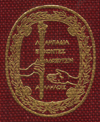 |
The House of Harper | Publishing history by US collaborator. J Henry Harper knew Collins slightly and his book includes a detailed account of the relationship between Collins and his family firm. |
|
1912 |
William H Rideing |
 |
Many Celebrities and a Few Others | Reminiscence after meeting in 1886. William Henry Rideing was an English journalist who made his career in America finally moving to Boston where he worked became assistant editor on The Youth's Companion. He met Wilkie in London in June 1886 and this reminiscence - published 26 years later - is based on that meeting. Wilkie showed him the collections of 'trials' which the stories he wrote for The Youth's Companion were based on. |
|
1912 |
Lucy Bethia Walford |
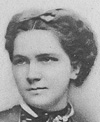 |
Memories of Victorian London | Reminiscence by young social acquaintance. Lucy Walford (1845-1915) recounts two meetings with Wilkie and the descriptions of his manner and quotes of what he said are the closest we get to hearing him speak. In the sixties Wilkie recounts two stories of his schooldays – about being bullied into telling stories and about a spider-eating friend. Then just after Wilkie returned from America in March 1874 he talked of his trip, the American people, interviews by journalists, and the climate. |
|
1913 |
Francesco Berger |
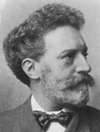 |
Reminiscences Impressions & Anecdotes | Account of The Frozen Deep by musician. Francesco Berger (1834-1933) published his Reminiscences Impressions & Anecdotes in 1913. Like many, they trade on his acquaintance with Dickens and this extract is from that chapter. But it contains some interesting material involving Collins and the events organised to support the family of Douglas Jerrold. Berger wrote and directed much of the music. More detail than in his 1931 book 97 |
|
1913 |
John Bigelow | 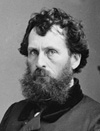 |
Retrospections of an Active Life | Account of meetings by a long term friend. John Bigelow (1817-1911) was an American writer and diplomat whom Wilkie met in 1867. Wilkie corresponded with Bigelow and his wife Jane for twenty years and visited their home in 1873 during his trip to America. Here Bigelow recalls that visit when Collins referred to Dickens and his mistress. At an earlier meeting over dinner Collins reveals his opium addiction. There is also a short extract from a letter dated 1868. |
|
1913 |
Percy Fitzgerald | 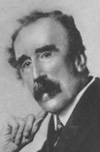 |
Memories of Charles Dickens | Reminiscence by writer friend. Fitzgerald knew Collins well (see his 1895 book) but by 1913 his views of Collins and his talents – and his friendship with Dickens – had become much more negative, influenced no doubt by a strand of thinking which was popular as Dickens’s reputation was developed in the early 20th century. This account, which covers similar ground, shows less attention to detail. |
|
1915 |
Leslie Ward | 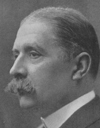 |
Forty Years of 'Spy' | Reminiscence by child of close friends. Sir Leslie Ward (1851-1922) was the son of Edward and Henrietta Ward. He is best known as the Vanity Fair caricaturist ‘Spy’ and produced 1325 caricatures for the magazine between 1873 and 1911. Ward's parents Edward and Henrietta were close friends of Collins – see Henrietta’s reminiscences of 1911 and 1924. This brief reminiscence contains a couple of anecdotes about Collins and his mother and brother. |
| 1923 | George Murray Smith |
 |
The House of Smith Elder | Reminiscences of publisher. George Murray Smith published some editions of his books including commissioning Armadale for The Cornhill Magazine. This book by a family friend Leonard Huxley used the reminiscences of George Murray taken down in 1899. Includes an account of his losing the bidding war for The Woman in White. |
| 1924 | Charles Hawtrey |
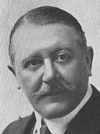 |
The Truth at Last | Account by an actor of the production of Rank and Riches in June 1883 which was booed off the stage and lasted less than a week. |
|
1924 |
Henrietta Ward | 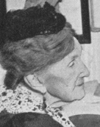 |
Memories of Ninety Years | Reminiscence by a close friend. Collins arranged the underage marriage of Henrietta Ward, an artist, to his close artist friend Edward Matthew Ward in 1848. Her Memories also includes stories about amateur dramatics and Wilkie's mother and brother. See also her Reminiscences above. One story is in both. |
|
1925 |
Squire Bancroft | 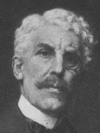 |
Empty Chairs | Reminiscence by actor friend. After his wife's death, Squire Bancroft re-told his memoirs under the poignant title Empty Chairs. Only one short passage relates to Wilkie - a very similar account of his opium addiction to that in The Bancrofts (1909). |
|
1927 |
Mackenzie Bell |
|
Half Hours with Representative Novelists | Short biographical note. A comment by Wilkie on Forster's life of Dickens is the closest to originality in Mackenzie Bell's (1856-1930) short introduction to a piece of Wilkie's writing. He puts his later life in context. It is not clear if Bell ever met or talked to Collins though he says he 'saw' him. The picture is of John Forster. |
|
1928 |
Julian Hawthorne |
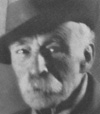 |
Shapes that Pass | Reminiscence by acquaintance. American novelist Julian Hawthorne (1846-1934 - seen here aged 81) seems to have met Wilkie in 1870 when Collins was aged 44. This eye-witness account of a visit contains an anecdote about Wilkie's absent-mindedness and two short assessments of him. |
| Francesco Berger | 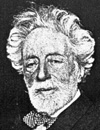 |
97 | Account of two plays by musician. Francesco Berger (1834-1933) wrote the incidental music for Collins’s two plays The Lighthouse and The Frozen Deep. Familiarly hagiographic about Dickens, this reminiscence (the title was his age) contains some details about performances of the plays but just a few mentions of Collins. He writes more about The Frozen Deep in his 1913 Reminiscences. | |
| 1932 | Arthur Wing Pinero |
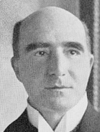 |
The Eighteen-Sixties | Eyewitness account by the actor Sir Arthur Pinero of Wilkie during rehearsals of Miss Gwilt in 1875 and at the first night of Rank and Riches in 1883 and his general kindness to actors. Quoted from a letter by Pinero to Walter de la Mare who wrote the essay 'The Early Novels of Wilkie Collins' in The Eighteen-Sixties. |
| 1934 | Henry Dickens |
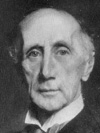 |
Recollections of Sir Henry Dickens | Several disconnected memories of Wilkie Collins by one of Dickens's sons. They include tricks at Gad's Hill, the Villa Molineaux at Boulogne, and Dickens's opinion on The Woman in White. Also a couple of stories relating to Charles Collins. |
|
1938 |
W B Maxwell | 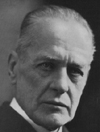 |
Time Gathered | Mentions by boy who met him. William Maxwell, the son of the novelist Mary Elizabeth Braddon, mentions Collins twice in his reminiscences. Once confirming that he visited Braddon and again that he admired her work. |
|
1939 |
Kate Perugini | 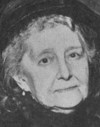 |
Dickens and Daughter | Reminiscences by Dickens's second daughter and Wilkie's sister-in-law Kate Perugini (left), as told to her friend Gladys Storey. Some accounts of Collins, including a short extract from a letter, his kindness to Catherine Dickens and his funeral, and some memories of Charles Collins, Kate's first husband. |
| Eileen Bigland | 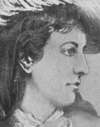 |
Ouida - the Passionate Victorian | A second-hand account of a meeting with Wilde and Ouida Bigland's biography of Ouida (seen left) claims that Oscar Wilde and Collins called on the novelist at the Langham hotel in 1887. | |
|
1962 |
John Lehmann | 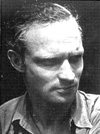 |
Ancestors & Friends | Eye witness quotes from family papers. John Lehmann (1907-1987) was the grandson of Frederick and Nina Lehmann (nee Chambers) who were among Wilkie’s closest friends. He uses family letters and papers and conversations with people who knew Collins, including his father Robert Chambers Lehmann. It contains an early account of The Lighthouse, a story of Wilkie's domestic life with Caroline, anecdotes about Wilkie in letters between Fred and Nina, extracts from known letters from Wilkie, an anecdote of the elderly Chorley involving Wilkie, details of when Fred met Nina, and the Lehmann family. |
|
1978 |
Victor Bonham-Carter | 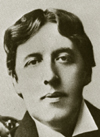 |
Authors by Profession | Account of a dinner in 1888 from documents. Victor Bonham-Carter uses papers of the Society of Authors, of which Wilkie was an early member, to give an account of a dinner at which Collins and Oscar Wilde - shown left - were present. |
early 1860s 1870s 1880s posthumous to 1899 obituaries 1900s 1910s 1920s 1930s later
Version 1.4.104 13 October 2013